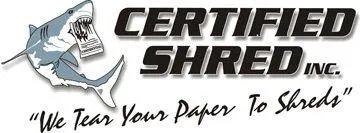Blog

Why Regular Shredding Service Is Critical for Ogden & Provo Office Security
Introduction
Imagine this: an employee tosses a stack of old HR files into the office trash. A few days later, someone retrieves those papers from the dumpster, gaining access to employee addresses, Social Security numbers, and salary information. This scenario is more common than many businesses think—and it can lead to data breaches, legal trouble, and reputational harm.
For businesses in Ogden and Provo, regular shredding service is more than a convenience—it’s an essential part of office security. This guide explores why ongoing document destruction matters, how it protects your company, and steps to put the right shredding program in place.
Understanding Regular Shredding Service
What Regular Shredding Service Means
Regular shredding service involves scheduled pickups or on-site shredding visits where a provider collects and destroys documents on a recurring basis—weekly, bi-weekly, monthly, or quarterly. Instead of occasional purge jobs, your business uses a consistent schedule to keep confidential information from piling up.
Why It’s Crucial for Ogden & Provo Offices
Businesses in northern Utah face the same risks as companies nationwide: identity theft, data breaches, and compliance requirements. Regular shredding reduces these risks by:
Preventing accumulation of sensitive files in desks, copy rooms, or recycling bins
Maintaining compliance with state and federal privacy regulations
Reducing insider threats by removing temptation for data theft
Supporting a clean-desk, secure work environment
Risks of Infrequent or One-Time Shredding
When businesses rely only on one-time purges, documents can sit around for months waiting to be destroyed. This creates vulnerabilities, including:
Longer exposure window: Sensitive information is accessible for longer periods
Compliance violations: Missed destruction deadlines may breach HIPAA, GLBA, or other regulations
Operational inefficiency: Employees spend time managing backlogs of documents instead of focusing on core work
How to Implement a Regular Shredding Program
To create an effective shredding schedule for your Ogden or Provo office, follow these key steps:
Audit Your Current Document Flow
Review where confidential documents are created, stored, and disposed of. Identify areas where papers accumulate—printers, filing cabinets, mail rooms.Assess Your Security and Compliance Requirements
Determine whether you are subject to HIPAA, PCI DSS, state privacy laws, or internal security policies. These rules may dictate how often documents must be destroyed.Choose the Right Schedule
Decide on weekly, bi-weekly, or monthly shredding based on your volume of sensitive material. Many businesses benefit from starting with monthly service and adjusting as needed.Use Secure Collection Containers
Place locked consoles or bins in convenient office locations. This encourages employees to dispose of documents securely rather than tossing them in open trash or recycling.Select a Trusted Provider
Work with a shredding company that offers background-checked staff, chain-of-custody protocols, and Certificates of Destruction. Consider whether on-site or off-site service is a better fit for your space and budget.Train Employees
Educate your team about what should be shredded (e.g., HR files, financial records, client information) and how to use the secure bins.Review and Adjust Over Time
Reassess your shredding frequency as your business grows or regulations change. You can add more bins, adjust pickup schedules, or combine with hard drive shredding as needed.
Frequently Asked Questions
Do I really need regular shredding if I can do a big purge once a year?
Annual purges leave documents sitting around for months, creating risk. Regular shredding closes the gap and keeps your office consistently secure.
Is scheduled shredding expensive?
In most cases, recurring service is cost-effective compared to one-time purges because the cost is spread out and predictable. It also saves time and reduces employee labor.
Can employees just use an office shredder instead?
Small office shredders are slow, prone to jams, and require staff time. Professional services handle large volumes quickly and securely, with certificates for compliance.
What types of documents should be shredded regularly?
Anything containing personal, financial, or proprietary data—such as HR records, invoices, payroll information, and customer files—should be destroyed on a schedule.
Can regular shredding help with compliance?
Yes. Scheduled service helps meet retention and destruction deadlines required by laws like HIPAA, FACTA, and state privacy acts.
Conclusion
Regular shredding service is not just an operational convenience—it’s a security strategy. For Ogden and Provo businesses, it minimizes the risk of data theft, keeps you compliant with privacy laws, and gives peace of mind that sensitive information isn’t left unprotected.
By auditing your document workflow, setting an appropriate schedule, and training your staff, you create a culture of security that protects your employees, customers, and company reputation.

© 2025 Certified Shred
Contact Information
Phone: 801-972-4748
Email: [email protected]
Address: 537 Pickett Circle Suite 600 Salt Lake City UT 84115
Business Hours:
Mon - Thu: 8:00 am-3:00 pm
Friday: 8:00 am - 1:00 pm
Sat - Sun: Closed
Service Areas
© All Rights Reserved • Grease Guys | Terms of Use | Privacy Policy